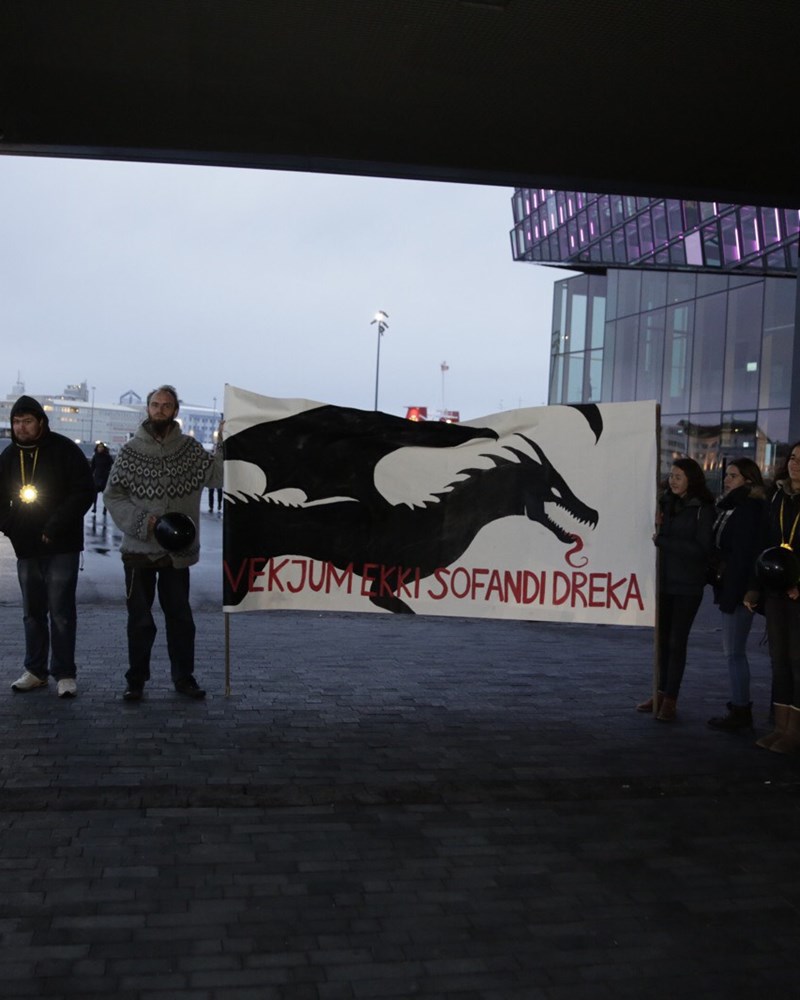2016 Breakout Sessions
Saturday, October 8th, 17:15–18:45
Breakout Sessions are organized by the respective partners of the Arctic Circle, organizations, institutions, companies, think tanks, universities, or other bodies.
Sustainable Marine Resources: a Piece of the Blue Economy Puzzle in the Arctic?
Organized by the North Atlantic Marine Mammal Commission, NAMMCO (30. September 2016)
Saturday, October 8, 17:15-18:45
Location: Norðurljós, Harpa Second Level
The session will attempt to bring out the main facts regarding the biology, management and international commitments regarding marine mammal resources in the North. A special focus will be on the economic and cultural importance of these resources.
The international commitments permitting and ensuring the sustainable and responsible use of marine resources will be reviewed as well as the advances in management and monitoring methodologies which permit the science-based approach to replace decades of overexploitation by sustainable exploitation. The Greenlandic example will illustrate the societal and economical price to coastal communities of not being able to exploit marine resources at hands. The session will open to the question of whether we are not at the time when the sustainable use of marine mammals is possible and one piece of the Blue Economy puzzle, thus accommodating the cultural and economic needs of the people in the North with our all willingness of preserving and restoring the marine ecosystem.
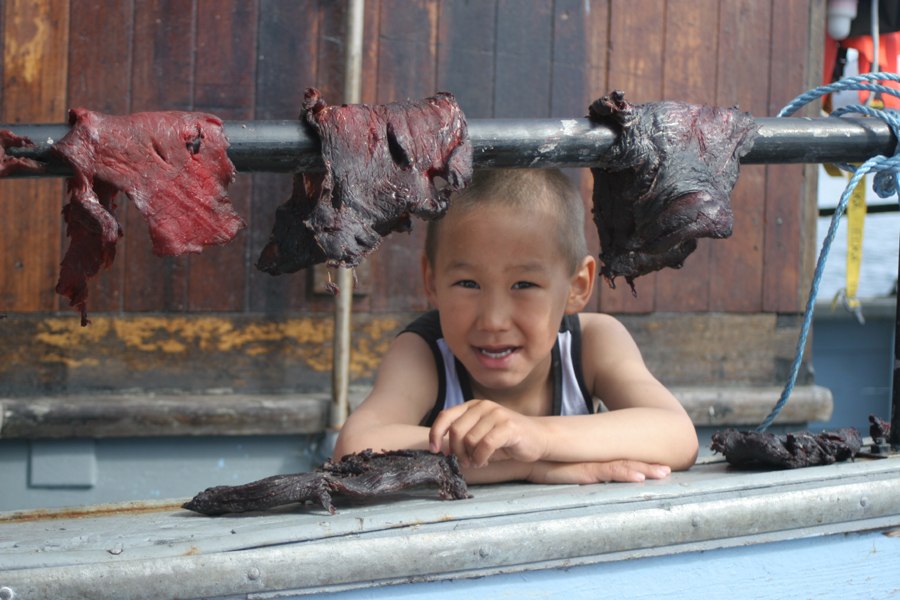
Speakers and panelists:
- Ásta Einarsdóttir, Chair of NAMMCO, Senior Legal Expert; Ministry of Industries and Innovation, Iceland: Introduction to NAMMCO
- Grímur Valdimarsson, Senior Advisor, Ministry of Industries and Innovation, Iceland: The Use of Living Marine Resources: The Rules of the Game
- Jóhann Sigurjónsson, Special Envoy on Ocean Affairs, Ministry for Foreign Affairs, Iceland: Science-based Use of Living Marine Resources.
- Ditte H. Sorknæs, Chief Executive Officer, Great Greenland: The Economical and Societal Consequences of Trade Barriers on Inuit Communities.
- Amalie Jessen, Head of Department, Greenlandic Ministry of Fisheries, Hunting and Agriculture
- Jóannes V. Hansen, Head of Section, Foreign Service, Faroese Ministry of Foreign Affairs and Trade
Chair:
-
Martin Breum, Journalist and author
Roundtable discussion.
Japan's Contribution: Science Challenge With Local Residents — Toward Arctic Sustainable Life
Organized by the Ministry of Education, Culture, Sports, Science and Technology of Japan, and the Ministry of Foreign Affairs of Japan (21. September 2016)
Saturday, October 8, 17:15-18:45
Location: Ríma A, Harpa First Level
This session will overview various research projects being conducted within the framework of the Arctic Challenge for Sustainability (ArCS), with a particular focus on relationship/collaboration between scientific activities and indigenous peoples, as well as knowledge sharing.
Japan respects the right of indigenous peoples of the Arctic to continuity on their traditional economic and social foundations. In this session, renowned Japanese researchers will give presentations on cutting-edge research.
Speakers
- Kazuko Shiraishi, Ambassador in charge of Arctic Affairs, Ministry of Foreign Affairs of Japan
- Takahiro Hayashi, Director, Ocean and Earth Division, Research and Development Bureau, Ministry of Education, Culture, Sports, Science and Technology of Japan
- Shin Sugiyama, Associate Professor, Hokkaido University: The ice sheet/glacier-ocean interaction in Greenland.
- Shirow Tatsuzawa, Assistant Professor, Hokkaido University: Ecological changes and adaptation of wildlife-human interaction in the Arctic under the global warming.
- Masanori Goto, Post Doctoral Fellow, Slavic-Eurasian Research Center, Hokkaido University: Constructing of teaching materials of environment education related to local history in Siberia synthesizing cultural memories with scientific knowledge.
Chair
- Masao Fukasawa, Professor, National Institute of Polar Research/Operating Executive Director, Japan Agency for Marine-Earth Science and Technology
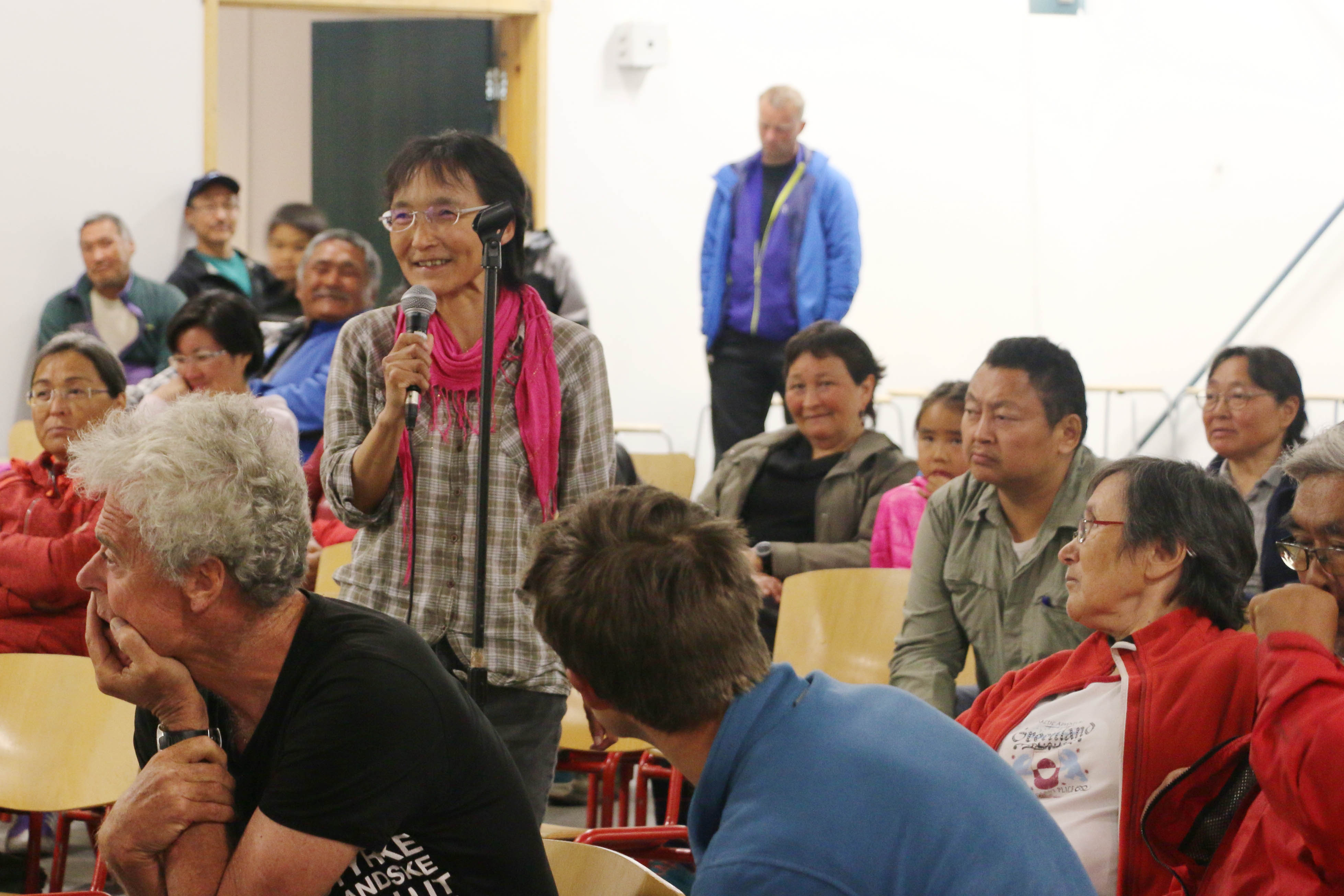
The ice sheet/glacier-ocean interaction in Greenland
Sugiyama, Hokkaido University
Our project studies changing ice sheet and glaciers in Greenland with a focus on ice-ocean interactions. We further investigate impact of ice and ocean changes on the life of indigenous people.
Ecological changes and adaptation of the wildlife-human interaction in the Arctic under the global warming
Tatsuzawa, Hokkaido University
This project is detecting ecological changes of wild resource animals (especially reindeer) and their influences on the Arctic ecosystem and the northern indigenous peoples. By using of these data, we are trying to establish an adaptive wildlife management system (hunting/reserve areas) for the coexistence of the Arctic flora, fauna and local peoples.
Constructing of teaching materials of environment education related to local history in Siberia synthesizing cultural memories with scientific knowledge
Goto, Hokkaido University
The purpose of this project is to return the scientific knowledge on environment change to the related stakeholders in Sakha (Yakutia) including indigenous peoples.
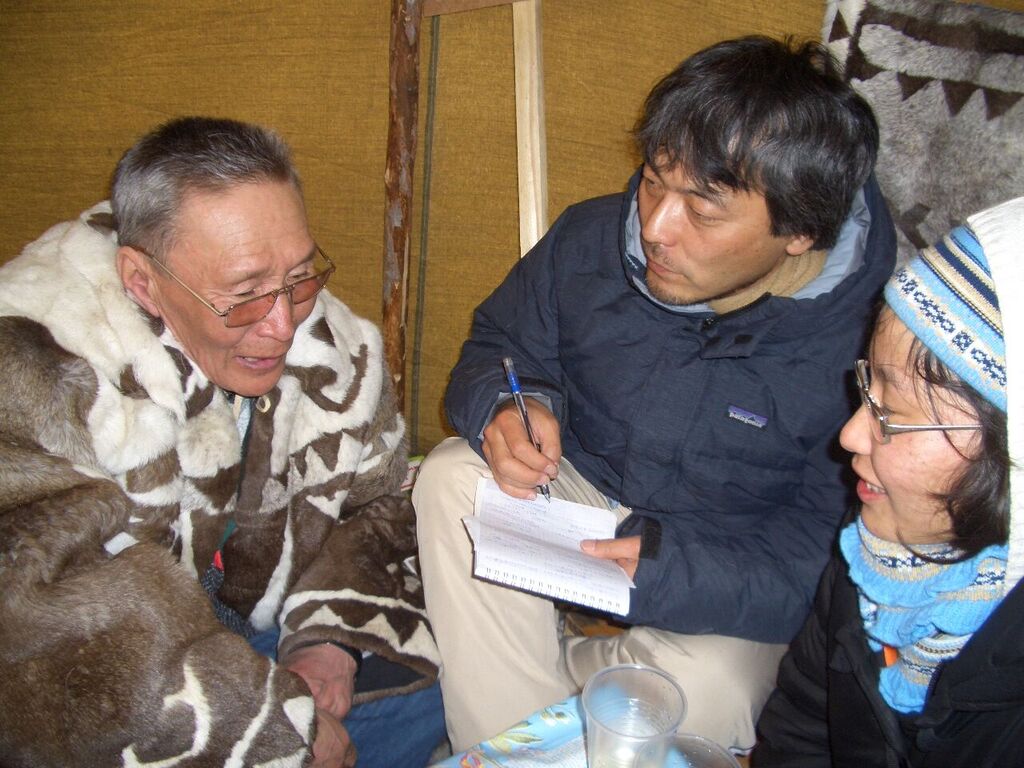
Arctic Invasive Alien Species: Acting Now to Prevent the Worst
Organized by the Conservation of Arctic Flora and Fauna (CAFF) and the Protection of the Arctic Marine Environment (PAME) Working Groups of the Arctic Council (13. September 2016)
Saturday, October 8, 17:15-18:45
Location: Skarðsheiði, Harpa Third Level
There are currently few invasive alien species in the Arctic, but more are expected with climate change and increased human activity. This represents a unique opportunity in the Arctic to decisively act now to reduce the threat before the problem becomes costly and resource intensive to address.
Under the Arctic Council, CAFF in partnership with PAME (on the marine component), has developed an Arctic Invasive Alien Species Strategy and Action Plan (ARIAS) (led by U.S.A. and Norway) to develop a strategy to prevent the introduction of invasive species in Arctic ecosystems.
This effort is particularly urgent for the Arctic region. Rapid climate change is making the region more vulnerable to invasive species introductions, and at the same time a rapid surge in human activity, transit, and energy development in the region is increasing the chance of introduction of new and invasive species. There is an immediate opportunity—already largely lost in many other regions of the world—to proactively build resilience to the risks posed by invasive species to the Arctic’s unique social, economic, and environmental systems.
Speakers:
- Gilbert Castellanos, International Affairs Specialist, US Fish and Wildlife Service: Introduction to the Invasive Species and Placement Within Arctic Council Work.
- Jamie Reaser, Executive Director, National Invasive Species Council (NISC) Secretariat, US Department of the Interior: The Arctic Invasive Species Strategy and Action Plan: Why it is Needed Now.
- Soffía Guðmundsdóttir, Executive Secretary, PAME: Efforts Underway to Develop and Implement Measures for Early Detection, Monitoring Eradication and Control in the Marine Environment.
- Sigurrós Friðriksdóttir, Advisor, Icelandic Environment Agency: Challenges in Addressing Invasive Alien Species in the Marine Environment: A National Perspective.
- Tero Vauraste, President and Chief Executive Officer, Arctia Ltd.; Co-Vice- Chair of the Arctic Economic Council: Three Industry Viewpoints on Invasive Species in the Arctic.
Moderator
Tom Barry, Executive Secretary, CAFF
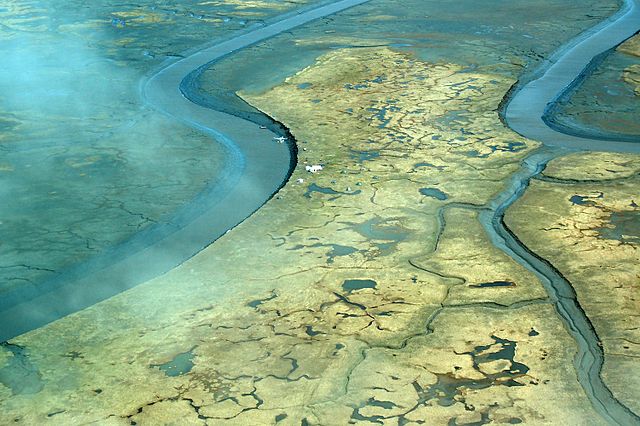
The Role of Arctic & Global Think Tanks in Arctic Policy Making
Organized by the Observatoire des Think Tanks/Think Tanks Observatory (26. August 2016)
Saturday, October 8, 17:15-18:45
Location: Main Hall, Þjóðmenningarhúsið (National Centre for Cultural Heritage)
In the past decade, many think tanks around the world have started working on Arctic and Antarctic affairs. Moreover, some think tanks dedicated to Polar affairs have been created inside and outside the Arctic states. This breakout session will discuss the impact of think tanks in shaping Arctic and Antarctic policy, security and economic development.
In this breakout session, the European Think Tanks Observatory will also present its new “Arctic and Antarctic Think Tanks Directory” and “Arctic and Antarctic Think Tanks Transparency label”.
The public, the media, administrations and decision-makers all increasingly rely on the input of think tanks to understand what is happening in the Arctic and Antarctic, what is at stake there, what is likely to happen there and how they should mitigate and respond to the increasing ecological, socio-economic and security risks these region face.
But what is a “think tank”, really? Who do they work with and for? What is their degree of financial and political transparency?
Speakers:
- Olivier Urrutia, CEO, European Think Tanks Observatory, EU: Hey, What is a Think Tank, Actually?
- Timo Rautajoki, President & CEO, Lapland Chamber of Commerce, Finland: Think Tanks as Bridges Between the Arctic Business and Policy Worlds
- Aleqa Hammond MP, Member of the Danish Parliament, Greenland: Reflexions on the Influence of Think Tanks in Shaping Today and Tomorrow’s Arctic
- Anželika Krastiņa, Lecturer, Lapland University of Applied Sciences, Finland: Case Study: “Think Barents” - an Arctic Think Tank
- Mikaa Mered, Chief Strategy Officer, European Think Tanks Observatory, EU: Presentation of the Observatory’s Arctic & Antarctic Think Tanks Transparency Label
Global Arctic: The Resource Dynamics of the Urbanized Arctic
Organized by the GlobalArctic Project and the Northern Research Forum (NRF) (26. August 2016)
Saturday, October 8, 17:15-18:45
Location: Silfurberg B, Harpa Second Level
Global warming and subsequent rapid accessibility of the Arctic to natural resources exploitation and transport routes leads to its industrialization and urbanization.
In this session, we will take a comprehensive approach to the resource dynamics of the urbanized Arctic in the following ways:
- (Re)assessing and analyzing the likely development (scope, migration, housing, other changes of urban settlements in the Arctic) as a result of mass-scale utilization (e.g. mines, oil drilling) and the opening of the Arctic to natural resources exploitation and global transport, and role of TNCs and SOEs there;
- Assessing the consequences of such development on
- The national, regional and local economies, and national policies,
- Indigenous peoples and cultures,
- Sustainable development / resilience,
- Comparing the urbanized Arctic to rural Arctic with small communities.
Speakers:
- Melissa Harris, Project Manager, International Institute for Sustainable Development: Barriers and Best Practices for Sustainable Housing in the Canadian Arctic
- Heather Nicol, Professor, Trent University: Resiliency in Northern Canada’s Communities Based upon Evaluating the Canadian Geographical Literature on Rural Reinvigoration and Governance Capacity
- Rachael Lorna Johnstone, Professor of Law, University of Akureyri: Free, Prior and Informed Consent in Large-Scale Development Projects in the Arctic
- “Greenland and the Arctic Council: Subnational regions in a time of Arctic Westphalianisation”
- Inuuteq Holm Olsen, Minister Plenipotentiary, Greenland Representation, Danish Embassy in Washington, DC
- Jessica M. Shadian, Senior Fellow, Bill Graham Centre for Contemporary International History, University of Toronto; Nansen Professor, University of Akureyri
- Matthias Finger, Professor, Ecole Polytechnique Fédérale Lausanne (EPFL): Governments Helping TNCs to Grab Arctic Resources
Moderator
Lassi Heininen, Professor, University of Lapland
Arctic Security: Unilateralizing Arctic Security – National Security, Military Policies, Defense Strategies, and State Sovereignty in the Globalized Arctic
Organized by the Thematic Network on Geopolitics and Security (26. August 2016)
Saturday, October 8, 17:15-18:45
Location: Silfurberg A, Harpa Second Level
This session will discuss national security and military policies, and defense strategies of the Arctic states, as well as militarization of the Arctic as a part of the region’s geopolitics.
The Thematic Network (TN) on Geopolitics and Security will, again, organize an international academic expert panel on “Security of the Arctic” including three breakout sessions with themes from theorizing and unilateralizing Arctic security and national security and military policies to redefining the new nexus of Arctic security. Security will be discussed theoretically and holistically from many angles and disciplinary approaches, as well as in global, national, regional and pan-Arctic contexts. Each session will accommodate 4-5 speakers from all over the Arctic region, among them are Jonathan Markowitz from the USA, Annika Nilsson from Sweden, Alexander Sergunin from Russia.
The session "Unilateralizing Arctic Security – National Security, Military Policies, Defense Strategies, and State Sovereignty in the Globalized Arctic" will also look at the Arctic and Arctic security from the point of view of a ‘win-win’ approach and through the lenses of China’s developing views.
Speakers:
- Valery Konyshev, Professor, Saint Petersburg State University: Russian Expert Community about Military Threats to Russia’s Security in the Arctic: Implications of the Ukrainian crisis
- Mike Corgan, Associate Professor, University of Boston: Arctic Climate and the US Political Climate
- Arttu Koskinen, University of Lapland, Finland: Tradition of Neutrality in the Finnish Security and Defence Policy after the Cold War
- Marc Lanteigne, Senior Research Fellow (Asia), the Norwegian Institute of International Affairs: Looking for ‘Win-Win’: China’s Developing Views of Arctic Multilateralism
- Sandra Maria Rodrigues Balão, Researcher, Universidade de Lisboa: The Militarization of the Arctic, the Nordic Military Pact and the 21st Century Arctic Geostrategic Game
Moderator: Alexander Sergunin, Professor, Saint-Petersburg State University
Exploring the Nexus of Health and Climate Change in Arctic Indigenous Communities
Organized by Ecologic Institute Berlin and the Ecologic Institute US (26. August 2016)
Saturday, October 8, 17:15-18:45
This session in kindly supported by Konrad Adenauer Foundation and WWF.
Location: Stemma, Harpa First Level
This session showcases the Arctic Summer College (ASC) program by inviting three of its 2016 Fellows to present their work to the international Arctic community.
The session will begin by exploring the fundamental role that the Arctic plays in not only global climate change, but in potentially altering global weather patterns which has particular consequences for Indigenous communities. Then, the connection between health and climate change will be examined through the lens of Arctic Indigenous communities in several Arctic states. Finally, the issue of sexual violence in Indigenous communities will be discussed with a focus on the US and Canada, providing additional context as we explore the challenging relationship between climate change and Indigenous health, both today and in the future.
The ASC, already in its sixth year, creates a virtual network of emerging leaders and experts who are brought together for eight weeks of interdisciplinary exchange, including a series of web-based seminars. The program aims to build a lasting, policy-oriented network of Arctic professionals and students to strengthen communication between peoples and nations, scientific disciplines, policy areas, and across the science-policy interface to improve governance and sustainable development in the Arctic.
Speakers
- Arne Riedel, Fellow, Ecologic Institute Mikayla Duarte, Meteorology Student, Northland College
- Carol Devine, Humanitarian Advisor, Médecins Sans Frontières (Doctors Without Borders), Canada
- Mary Ehrlander, Director, Arctic & Northern Studies Program, Professor of History, University of Alaska Fairbanks
- Mikayla Duarte, Meteorology Student at Northland College
Moderator
- Andreas Kraemer, Senior Fellow, IASS Potsdam; Founder, Ecologic Institute
Cleaning the (Arctic) Ocean
Organized by the Ministry of Foreign Affairs of the Netherlands (26. August 2016)
Saturday, October 8, 17:15-18:45
Location: Hafnarkot, Harpa First Level
The goal of the session is to illustrate the importance of clean and healthy oceans and to discuss some of the threats that oceans and Arctic waters are facing, in particular plastic debris and marine litter.
Among the questions that will be addressed are the following. What kind of pollution is found in the Arctic, on the shores but also for example in bird stomachs? What are the sources and what can be done to tackle the problems? What role can governments, industry, NGO’s and individuals play to ensure that the oceans, and the Arctic ocean in particular, remain healthy for long term sustainable use?
This session will be kicked off and moderated by the Dutch Arctic Ambassador for the Netherlands, Mr. Kees Rade, and/or the Senior Artic Official to the Arctic Council for the Netherlands, Mr. Jorden Splinter.
Speakers
- Susanne Kühn, PhD Student, Wageningen University Marine Research: The Northern Fulmar (Fulmarus glacialis) as an Indicator for Marine Plastic Pollution.
- Lex Oosterbaan, Senior Adviser, Rijkswaterstaat, Ministry of Infrastructure and the Environment in the Netherlands: Dealing with Marine Litter, Green Deals and Crossing Borders.
- Eelco Leemans, Founder/ CEO, Leemans Maritime Consultancy: Preventing Maritime Litter: Strategies to Prevent Marine Litter from Shipping and Fisheries.
What’s going on in the North Atlantic?
Organized by the University of Iceland, Icelandic Met Office, PIK (24. August 2016)
Saturday, October 8, 17:15-18:45
Location: Björtuloft, Harpa Fifth Level
In recent summaries of global temperature changes (such as in the IPCC WG1 report from 2013 [*]) the North Atlantic between Newfoundland and Ireland is one of the few regions on the globe that has defied the warming trend, and even cooled. In recent years, a region of colder than usual temperatures has appeared there every winter, and often persisted throughout the summer.
This phenomena has been referred to as the North Atlantic Cold Pool. What is going on? Oceanic conditions in this region are kept warm by the North Atlantic Current, an extension of the Gulf Stream, that brings warm waters towards Europe. The region is also a meeting place of water masses because there is a cold ocean current flowing from Greenland and the Labrador sea that encounters the warmer waters east of the Canada coast. To a certain extent the surface conditions in the North Atlantic are determined by the interaction of these warm and cold-water masses, but their dynamics is also influenced by the Atlantic Meridional Overturning Circulation that has long been implicated in climate variability in the region. To complicate matters even further, conditions in the atmosphere, such as the frequency of cold air outbreaks from the North American continent during winter may also influence the local surface conditions of the ocean. Due to the number of different factors that influence the oceanic climate in the region explaining the appearance of the Cold Pool is not trivial. Some studies show that the Cold Pool may be the result of a slowing down of the circulation that brings warm waters into the region, but more work is needed to understand the variability (natural as well as anthropogenic) of the region. This workshop brings together scientists to discuss the origin and consequences of the Cold Pool.
Speakers:
- Halldór Bjornsson, Head of atmospheric research group, Icelandic Met Office: “The North Atlantic Cold Pool. A short biography”
- Stefan Rahmstorf, Head of Earth System Analysis, Potsdam Institute for Climate Impact Research; Professor Potsdam University: Evidence for a significant slowdown of the North Atlantic overturning circulation
- Ingibjörg Jónsdottir, Professor University of Iceland: The impact of the north Atlantic Cold Pool
- Steingrímur Jónsson, Professor of Oceanography at the University of Akureyri
- Héðinn Valdimarsson, Senior Research Scientist at the Marine Research Institute, Reykjavik
Chair:
- Oddur Sigurðsson, Geologist, Icelandic Met Office
The Arctic as a Venue for U.S. and Asian Cooperation with Russia
Organized by the RAND Corporation (24. August 2016)
Saturday, October 8, 17:15-18:45
Location: Kaldalón, Harpa First Level
Tensions between Russia and the U.S. have deepened since the annexation of Crimea in 2014. The Arctic, however, has remained a relative bright spot for cooperation between the two states, with the Arctic Council providing a forum for bilateral and broader multilateral dialogue between Russia and the West on issues such as search and rescue coordination, oil spill prevention, and black carbon mitigation
At the same time, as U.S. and E.U. sanctions and the drop in the price of oil have continued to take their toll on the Russian energy sector, Russia has turned towards East Asian states, particularly China and South Korea, for financing and infrastructure. In light of these developments, this session considers whether the Arctic Council will remain a viable arena for cooperation between Russia and the West and whether Russia really is making an eastern turn, even in the Arctic.
Speakers:
- Mia Bennett, PhD Candidate, Department of Geography, UCLA and Founder, Cryopolitics.com: Shifting from West to East: Russian-Asian Cooperation in the Arctic.
- Natalia Loukacheva, Canada Research Chair in Aboriginal Governance and Law, University of Northern British Columbia, Canada: Prospects for North American Cooperation with Russia in the Arctic.
- Elana Wilson Rowe, Senior Research Fellow/Adjunct Professor, University of Nordland: Network diplomacy and Arctic politics
- Jørgen Staun, Associate Professor, Institute for Strategy, Royal Danish Defense College, Copenhagen: Russian Arctic policy.
- Ekaterina B. Sokolova, Head of the East Asia Research Center, Center for Maritime International Studies of Admiral Nevelskoy Maritime State University, Russia: Russia's view toward international collaboration in developing the Northern Sea Route.
Chair:
- Abbie Tingstad, PhD, Physical Scientist, RAND Corporation: The Arctic as a Venue for U.S. and Asian Cooperation with Russia.
Cultivating Trans-Atlantic Ocean Foods Entrepreneurship Through International Scientific and Educational Cooperation
Organized by the University of New England (UNE), New England Ocean Cluster, Holar University College, and the University of Akureyri (23. August 2016)
Saturday, October 8, 17:15-18:45
Location: Esja, Harpa Fifth Level
The world’s oceans produce only 1-4% of total human foods. Aquatic protein production systems of fisheries and aquaculture are far superior choices for global investments to 2050 and beyond in comparisons to any other terrestrial animal protein production systems. Nutrient-rich, omega-3 rich, seafoods are, from other global scientific reviews, better food choices for human health than land-based protein foods.
This session will focus on the needs for international scientific and educational partnerships for the full utilization and sustainable development of the rapidly developing North Atlantic and peri-Arctic seas fisheries and aquaculture resources. Full marine product utilization can lead to the development new ocean-based product development/recycling/innovation economies as more sustainable alternatives to the current, inefficient ocean food economies where about one-half of all fisheries harvests are wasted. We propose new, innovative, international university marine entrepreneurship programs to develop the next generation of ocean foods leaders that will implement the ideals of the FAO Conventions of responsible fisheries and ecological aquaculture and their allied economic opportunities. The session will develop new networking and partnership opportunities between academic institutions and seafood trade, product, and marketing institutions
Speakers
- Patrick Arnold, CEO of Soli DG: Achieving Full Utilization in the Ocean Economy
- Barry Costa-Pierce,Professor, Chair and Director of the Department of Marine Sciences, Marine Science Center, University of New England: New International Programs in Ocean Food Ecosystems
- Ögmundur Knútsson, Dean, School of Business and Science, University of Akureyri: Development and Opportunities in North-Atlantic Fish Industry
- Helgi Thorarensen, Professor of Aquaculture and Fish Physiology, Holar University College: Future Challenges to Aquaculture in the Arctic
- Glenn Page, President/CEO of SustainaMetrix, USA; Developmental Evaluator in Residence, Centre for Environmental Change and Human Resilience, University of Dundee: Measuring Progress to Sustainability Through Complexity, Innovation and Learning
BlueTech Innovation for a Developing Arctic
Organized by the Fletcher School at Tufts University (18. August 2016)
Saturday, October 8, 17:15-18:45
Location: Eyri, Harpa Second Level
Blue Technology (BlueTech), maritime-oriented technology, is changing the ways humans interact with the ocean.
New maritime technologies drive economic opportunities in sustainable fishing, renewable energy, and ocean data collection – and extend across diverse but complementary industries, including naval architecture, the Internet of Things, data science, and alternative energy. This panel will explore BlueTech trends and how they could help Arctic communities implement sustainable development.
The panelists represent leaders across the BlueTech domain, including the private sector, public sector, and academia. They represent diverse industries, including fishing, energy, data science, and entrepreneurship, to provide a comprehensive view of BlueTech’s impact.
Speakers:
- Þór Sigfússon, Founder and CEO, Iceland Ocean Cluster House: Iceland Ocean Cluster House as a Blue Tech Innovation Model.
- Halla Hrund Logadóttir, Louis Bacon Environmental Leadership Fellow at the Harvard Kennedy School of Government: Developing Renewable Energy in the Arctic - Successes and Challenges.
- Matthew Merighi, Executive Director and Co-Founder, Blue Water Metrics Inc: Data and BlueTech: A New Arctic Resource?
- Jack Whitacre, Research Fellow, Institute for Global Maritime Studies Inc: Cyber-Security and BlueTech Innovation in the Arctic.
- Edward Anthes-Washburn, Executive Director, Port of New Bedford, Massachusetts: Sustainable Fishing and BlueTech Innovation in the Arctic.
- Andrew C. Hess, Professor of Diplomacy & Director, Program on Southwest Asia & Central Asia, Fletcher School of Law and Diplomacy at Tufts University: Sustainable Strategies for Offshore Oil & Gas Exploration in the Arctic.
Moderator:
- Rockford Weitz, Professor of Practice, Entrepreneur Coach & Director, Maritime Studies Program, Fletcher School of Law and Diplomacy at Tufts University
Corporate Social Responsibility in the Arctic
Organized by the Emerging Leaders in Environmental & Energy Policy network (coordinated and funded by the Atlantic Council and Ecologic Institute think tanks) (18. August 2016)
Saturday, October 8, 17:15-18:45
Location: Ríma B, Harpa First Level
Corporate Social Responsibility (CSR) is the practice by which companies decide to voluntarily contribute to a better society and a cleaner environment. It means that companies integrate social and environmental concerns in their core business operations and in their interaction with stakeholders.
For the Arctic region, the Ministers representing the eight Arctic States officially welcomed the Arctic Council’s work on CSR within the May 2013 Kiruna Declaration. It is therefore vital for companies looking to do business in the region to obtain and maintain their ‘social license to operate’, yet full multidisciplinary commitment is still lacking. From a multi-sector perspective, including the mining and oil & gas industries, this session uncovers transatlantic opportunities for companies operating in the Arctic to offer communities improved livelihoods whilst at the same time continuing to do business in the region. The session hopes to identify key challenges, as well as potential solutions, based on internationally recognised methods of best practice.
Speakers:
- Jóhanna Harpa Árnadóttir, Project Manager – CSR, Landsvirkjun
- Edvard Glücksman, Social & Environmental Specialist, Wardell Armstrong and University of Exeter
- Victoria Herrmann, President and Managing Director, The Arctic Institute
- Ketill Berg Magnússon, Managing Director, Festa - Icelandic Center for Corporate Social Responsibility
Chair:
- Stacy Closson, Associate Professor, Patterson School of Diplomacy and International Commerce, University of Kentucky; 2016 Core Fulbright U.S. Scholar
Remote Renewable Case Studies: Participatory Stakeholder Engagement for a Sustainable Future
Organized by WWF-Canada, the WWF Arctic Programme and the Institute for Advanced Sustainability Studies (IASS), Potsdam, Germany (18. August 2016)
Saturday, October 8, 17:15-18:45
Location: Háaloft, Harpa Eighth Level
There is common understanding that the global community needs to act on multiple challenges that global change processes bring about for living conditions on earth, including climate change, availability of resources, securing access to clean and affordable energy, and the dangers from environmental degradation. In no place is the interrelationship and understanding of these issues more pressing than in the Arctic.
The United Nations 2030 agenda for sustainable development cites "Ensure access to affordable, reliable, sustainable and modern energy for all" as number 7 of its 17 goals. In remote regions of the world, these problems come into sharp focus and although there remains much work to do to reach this goal, there are good examples of these problems being solved at the community as well as the state level, for example, renewable energy deployment projects. To address Arctic-global connections, thorough attention must also be paid to the ability and empowerment of stakeholders/actors (both within and outside the Arctic and across geographical boundaries) to engage and participate in shaping the future of energy in the region. In this session, the future of renewable energy in the North will be discussed in this context, bringing together experts on stakeholder engagement and renewable energy in the Arctic. Building partnerships, strengthening global-regional interconnections and strengthened stakeholder engagement and interaction will aid the transition to sustainable, participatory, and affordable energy futures for the Arctic.
Guiding Questions:
- What are the causes and consequences of energy isolation or poverty in harsh environments like in Arctic regions? Which causes are regional, which global in nature?
- What are the specific conditions and challenges for individual Arctic communities to sustainable, participatory and affordable energy futures?
- What ideas and initiatives exist to improve sustainable energy access in energy-isolated communities?
- How can Arctic communities learn from each other through an open exchange of knowledge, experiences and best practices?
- How can non-Arctic actors contribute to energy security within the region and address sustainability concerns of Arctic oil and gas development?
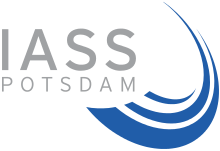
Goals:
- Create and strengthen existing networks between stake- and rights-holders residing within and outside the Arctic and initiate a dialogue for lessons learned between different Arctic regions concerning sustainable and affordable energy futures.
- Discuss and share lessons learned between different Arctic regions, including potential solutions that might generate investments in RE projects and the role various stakeholders might play in advancing implementation.
- Outline how innovative policy and ownership arrangements and strengthened networks between stake-and rights-holders residing within and outside the Arctic can accelerate the substitution of diesel with renewable energy options.
Speakers
- Farid Sharifi, Senior Specialist – Renewable Energy, WWF-Canada: WWF-Canada’s recent efforts to implement three renewable energy projects in Canada’s Arctic by 2020
- Greg Poelzer, Executive Chair of ICNGD; Professor, School of Environment and Sustainability, University of Saskatchewan
- Kåre Hendriksen, Associate Professor, Arctic Technology Department, Technical University of Denmark
- Kirsti Mijnhijmer, Programme Manager, Northern Periphery and Arctic Programme Secretariat
Chair: David Miller, President & CEO, WWF-Canada

Emergency Preparedness in Small Communities: Project Updates
Organized by the Institute of the North (15. August 2016)
Saturday, October 8, 17:15-18:45
Location: Akrafjall, Harpa Fourth Level
This interactive session will focus on a current project of the Arctic Council’s EPPR Working Group, “PPR in Small Communities.”
The project will produce a database of community-level preparedness, comprised of information related to planning, training, risk, impact and response assets. Participants will review the scoping document, suggest additional resources, provide feedback on the evaluative mechanism and generally comment on oil spill planning, preparedness and response at a local level.
Speakers:
- Nils Andreassen, Executive Director, Institute of the North: Oil Spill Preparedness in Small Communities: A Circumpolar, Local Approach to Risk and Response
- Tor Husjord, CEO, Maritimt Forum North, Norway: Applied Research and Cooperation for Successful Search and Rescue Operations
- Anthony Edwardsen, President & CEO, Ukpeaġvik Iñupiat Corporation (UIC): Building Capacity within Local Communities: An Indigenous-Driven, Innovative Solution

